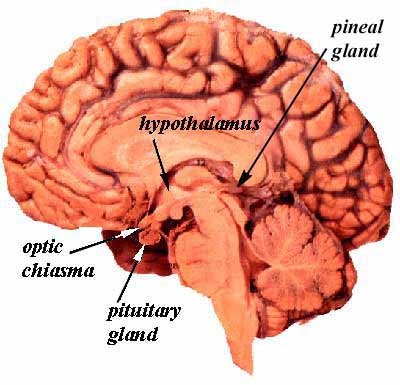
Women taking hormone drugs during oraround menopause have a higher risk of developing breast cancerthan those who wait five years, according to a study of morethan 1.1 million British patients.
The magnitude of the risk was also linked to the type ofhormone replacement therapy the women took, researchers saidtoday in the Journal of the National Cancer Institute, an OxfordUniversity Press publication not affiliated with the U.S. National Cancer Institute.
The study updates research that showed a link between thetherapy, known as HRT, and breast cancer risk, and is the firstto investigate the timing of the treatment. A tie betweenhormone type and risk had been suggested by the U.S. Women’sHealth Initiative, a set of clinical trials and a study ofhealth records for 161,808 postmenopausal women.
“What we found and what had been suggested earlier is thatif you start taking HRT at or around menopause, the risks ofbreast cancer are higher,” said Valerie Beral, lead researcherfor the latest study and director of the cancer epidemiologyunit at Oxford University in Oxford, England, in a telephoneinterview today. “It’s not only the interval, it’s also thekind of HRT the women are taking.”
The study found that about 55 percent of the 1.1 millionwomen in the study, recruited from 1996 to 2001, reported takinghormone therapy at some time in their lives.
Timing important
Among women in their 50s who never took hormones, theannual rate of breast cancer was 3 per 1,000 in the study. Therewas little to no increased risk for women getting estrogen aloneat the time of study if they had started the therapy at leastfive years after menopause. If they had begun estrogen aloneless than five years after menopause, their risk increased to4.3 breast cancers per 1,000.
Women who had started the combination of estrogen andprogestin less than five years after menopause showed a rate of6.1 per thousand, about double the risk of never-users, theresults showed.
“We’ve known for a while that HRT can increase the risk ofbreast cancer,” said Ed Yong, head of health information forCancer Research UK, a London-based charity, in an e-mailedmessage today. “This study suggests that there might be somesituations in which that risk is small or negligible.”
Delaying HRT therapy to minimize risk may not be feasible,because hormones are usually prescribed to alleviate symptomsduring menopause, not five years later, Beral said.
Reduced estrogen levels during menopause may cause the partof the brain responsible for temperature control to malfunction,according to the North American Menopause Society, a nonprofitorganization based in Mayfield Heights, Ohio. Hot flashes strikesuddenly and can be accompanied by rapid heartbeat, nausea,dizziness, headaches, muscle weakness and fatigue, according tothe group.
Wyeth, acquired in October 2009 by new York-based PfizerInc. for $68 billion, is the largest maker of hormonereplacement drugs. Annual sales of Wyeth’s hormone-replacementdrugs topped $2 billion before results from the Women’s HealthInitiative released in 2002 suggested women using the medicineshad a higher breast cancer risk.
The National Cancer Institute, based in Bethesda, Maryland,estimates that there were 209,000 new cases of breast cancer inthe U.S. last year, and about 40,000 deaths from the disease.
To contact the reporter on this story:Eva von Schaper in Munich at ;
To contact the editor responsible for this story:Phil Serafino at